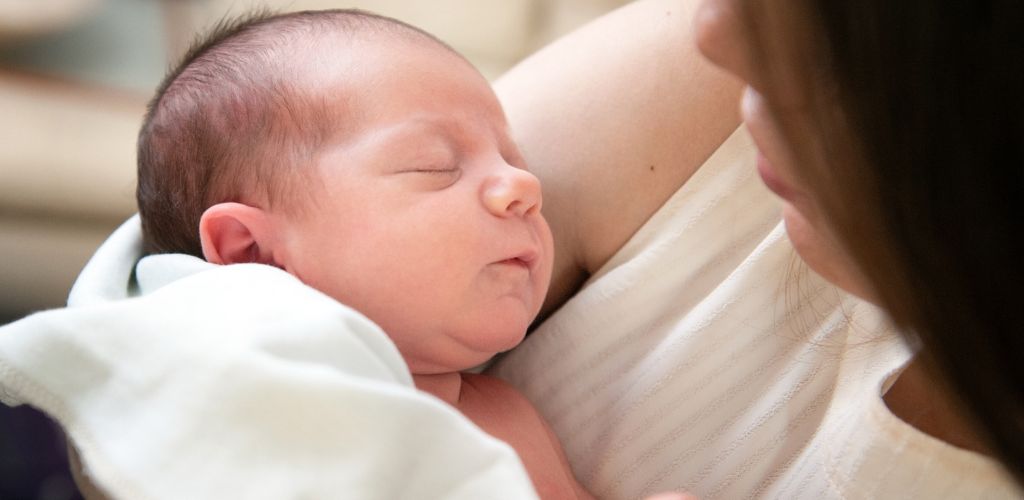
What is postpartum care?
The postpartum period is the first six weeks after childbirth. It starts after the delivery and ends when the mother’s body returns to the pre-pregnant state. In this period, as a mother you need to adapt to many emotional and physical changes. The postpartum period, also demands you and your partner to:
- learn about taking care of a newborn
- adjusting to the new dynamics between each other
- learn how to function as a changed family unit.
Why is motherhood so hard and how to adjust to it?
Emotional changes are a big part of motherhood. Adapting and adjusting to motherhood can be challenging, especially if it’s your first time. You need to take care of yourself and your baby. Some of the newly added responsibilities or hassles include:
- Feeding the baby
- Experiencing sleepless nights to take care of your baby
- Dealing with the frustration and fatigue that would come from your new normal.
However, you will soon be able to adapt to the new routine. The steps you need to take for a smooth transition to the new lifestyle that comes with having a baby include:
- Rest as much as possible:Deal with fatigue and try to get as much rest as possible.A newborn baby may wake up frequently in two to three hours for feeding. You should try to get some rest when your baby sleeps.
- Seek help: Take help from family and friends during the postpartum period. While you take care of your baby, you can get help to take care of other household chores like preparing meals or cooking.
- Healthy diet: To ensure continuous healing, only eat healthy and nutritious food. Try to take in as many whole grains, vegetables, protein and fruits as possible. You should increase your fluid intake. This is especially important if you are breastfeeding.
- Exercise regularly: You can consult with your healthcare providers to know exactly when to start exercising after giving birth. Try to avoid rigorous exercise.
Adding the new family unit
A newborn baby can change the dynamics between you and your partner. Postpartum period also requires an adjustment in the lives of the entire family. During this period, you may get to spend less time with your family, which can lead to some domestic tension.
Even though this may prove stressful and can lead to overwhelming emotions, you can always find ways to manage such a situation.
- Patience is the key: You and your partner should understand when a baby comes into the picture; all couples undergo some changes. With time you and your partner will eventually figure out a way to care for the baby and each other, and soon enough, you’ll find your new normal.
- Communication: Regardless of how dire the times may seem, tryto maintain communication in the family. Whether the issue is related to a spouse or the child communicate and discuss your problems. Your baby will require a lot of attention and care; however, don't feel guilty about spending alone time as a couple during the postpartum period.
What are Baby blues?
After a few days of giving birth, you may experience the baby blues. The symptoms vary and in some cases, there are no symptoms at all. Studies show that about 70 to 80 percent of new mothers experience the following after giving birth:
- Mood swings
- Negative feelings after giving birth
The leading cause of baby blues is hormonal changes and is usually accompanied by symptoms such as:
- Unexplained crying
- Sadness
- Restlessness
- Irritability
- Sadness
- Insomnia
What is the difference between baby blues and postpartum depression?
If the symptoms for baby blues last for more than two weeks, then it is called postpartum depression.
Some of the symptoms that are specific to postpartum depression include:
- Feelings of guilt
- Feeling worthless
- Loss of interest in everyday activities
- Losing interest in the baby
- Having thoughts of hurting the baby
- Withdrawal from the family
|
Alert: You must not overlook postpartum depression. If you feel depressed for more than two weeks after giving birth or having thoughts of hurting the baby, immediately talk to your doctor. |
Postpartum depression can develop any time after birth. It may last for over a year after delivery.
How to cope with body changes in the postpartum period?
When it comes to the physical changes you should stay patient as for most changes, things will revert back to normal in some time. For instance, the most prominent of all changes after pregnancy is weight gain. To solve this problem you can’t expect overnight weight loss. Consult with your doctor to know when your body would be ready for exercising. Once your doctor approves, start with moderate activity like walking for short distances. Gradually you can increase the intensity and the length of your workouts. Some of the exercises you can start with include:
- Walking
- Swimming
- Aerobics
For losing weight, you also need to eat healthy, balanced and nutritious diet that includes fruits, vegetables and whole grains.
Note:Different people have different bodies, so there is no point in comparing the speed of weight loss with other mothers and feeling depressed.
Another good way to increase the number of calories you burn in a day is breastfeeding.
Some of the other body changes include:
- Nigh time Sweating: hormonal changes cause this.
- Uterine pain: After giving birth, the uterus starts shrinking. This can cause cramping, however, eventually, the pain will subside. Consult your doctor to know about the safe medications.
- Pelvic floor changes: during childbirth, the perineum (the tissue between rectum and vagina) stretches and may tear. Occasionally your doctor may make an incision in this area to help in labor. To assist in the recovery of this area, you can do:
- Kegel exercises
- Put icing on the area.
- Sit on a pillow
- While you’re passing urine pour warm water over the incision
- Consult your health care to know about the possible pain relievers you can take
- Constipation: To solve the problem of constipation, you should:
- Drink lots of water
- Consume high-fiber foods
- Discuss with your healthcare provider to know about a stool softener or laxative that you can use to prevent constipation.
|
Alert: If you are having severe pain consistently, you should see your doctor as soon as possible, since this may be a sign of infection. |
- Vaginal discharge: After delivery, the superficial mucous membrane that lines the wall of the womb starts shedding.For a few weeks you will experience vaginal discharge made up of:
- The mucous membrane and
- blood
Initially, in the first few days, the vaginal discharge will be red and heavy. After that, it will become watery and its color will change from brown to yellowish-white.
|
Alert: Immediately talk to your doctor if you notice the following:
|
- Contractions: After the first few days of delivery, you might sometimes experience contractions (also known as afterpain).The nature of these contractions is similar to menstrual cramps- This is body’s mechanism to prevent excessive bleeding by compressing the blood vessels in the womb (uterus). After pains usually occur during breast feeding because of the release of the hormone oxytocin. For getting relief from these pains you may ask your doctor to recommend an over-the-counter pain reliever.
- Breast engorgement: In the first few days following childbirth, a woman might experience tender breasts. Frequent breastfeeding on both breasts can help in avoiding or minimizing engorgement.
- Hair loss and skin changes: During pregnancy, the hormone levels are high, which means the hair will grow faster than it falls. Due to this, you may notice a sudden increase in hair volume. However, after delivery, when the hormone levels fall back,there may be hair loss for about 5 months – however, this time frame is not a consistent observation.
- Mood changes or baby blues
- Incontinence: the pelvic floor muscles support the uterus, bladder and rectum. Pregnancy, labor or vaginal delivery can stretch or even injure these pelvic floor muscles. This condition can lead to a few drops of urine leaking while sneezing, coughing or laughing. The problems usually improve within weeks; however, they might persist long term.
In the meantime, you can do the following to tone your pelvic floor muscles and to control your bladder:
- Wearing sanitary pads
- Doing pelvic floor muscle exercises (Kegels)
- Hemorrhoids and bowel movement: If you are noticing pain during bowel movement and are feeling swelling near your anus, this might be a sign of swollen veins in the anus or the lower rectum (hemorrhoids). While the hemorrhoids heal, you can ease the discomfort by:
- Applying an over the counter hemorrhoid cream or suppository containing hydrocortisone
- Use pads containing witch hazel or a numbing agent.
- Soaking your anal area in plain warm water for about 15 minutes two to three times in a day
Occasionally, you may feel like avoiding bowel movements out of fear of hurting your perineum or aggravating the pain of hemorrhoids or the episiotomy wound. In such a case, you can take appropriate steps for keeping your stool soft (you can consult your healthcare provider to know about a stool softener).For this eat foods that are high in fiber like:
- Fruits
- Vegetables
- Whole grains and drink plenty of water.
Reference:
- https://www.ncbi.nlm.nih.gov/pmc/articles/PMC3815625/
- https://www.ncbi.nlm.nih.gov/pmc/articles/PMC5133054/#:~:text=Pregnant%20women%20are%20therefore%20advised,day%20after%20six%20months%20postpartum.
- https://www.ncbi.nlm.nih.gov/pmc/articles/PMC3083254/
- https://www.ncbi.nlm.nih.gov/pmc/articles/PMC6752749/
- https://www.pregnancybirthbaby.org.au/safe-return-to-exercise-after-pregnancy#:~:text=Build%20up%20to%20a%2030,8%20weeks%20after%20the%20birth).
- https://www.ncbi.nlm.nih.gov/pmc/articles/PMC6492314/
- https://www.ncbi.nlm.nih.gov/pmc/articles/PMC3902863/
- https://www.uofmhealth.org/health-library/hw133953
- https://www.ncbi.nlm.nih.gov/pmc/articles/PMC6492314/
By -
Dr. Ruchika Singh
14-April-2023



